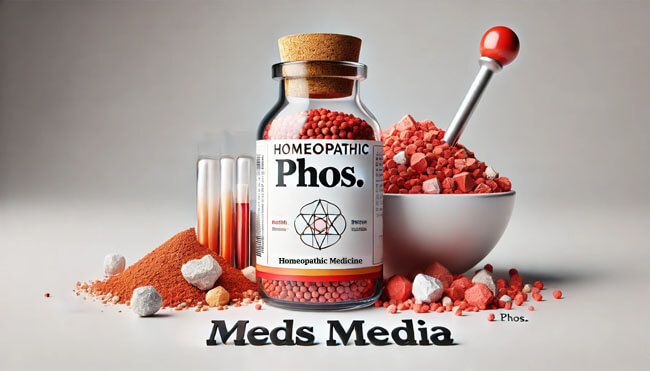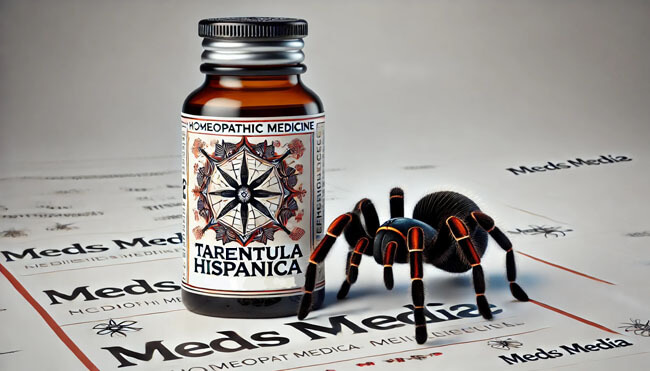
Introduction to Phosphorus Personality
The Phosphorus personality is one of the most distinct constitutional types in homeopathic practice. Phosphorus, derived from the chemical element known for its light-bearing properties, illuminates a personality marked by sensitivity, emotional intensity, and nervous exhaustion. This remedy is often prescribed to individuals who exhibit both physical and emotional frailty, with a strong susceptibility to external stimuli such as light, sound, electrical changes, and even thunderstorms. Phosphorus people tend to be tall, slender, and often possess a pale, transparent complexion. Their mental and physical symptoms are characterized by suddenness—from sudden weakness to swift changes in emotions and physical complaints.
Phosphorus Personality
The Phosphorus type is highly susceptible to their environment and often finds it difficult to maintain stability in the face of physical or emotional challenges. These individuals are typically warm, affectionate, and open, often becoming deeply emotionally attached to those around them. However, this intense openness can also make them prone to nervous exhaustion, fear, and anxiety. They frequently exhibit a longing for connection but may withdraw when overstimulated or overwhelmed by their environment.
Peculiar Symptoms of Phosphorus
- Heightened Sensitivity: Phosphorus patients are extremely sensitive to external impressions such as light, sound, odors, touch, and electrical changes. They may experience sudden prostration or collapse due to sensory overload.
- Unquenchable Thirst for Cold Water: A peculiar craving for very cold water, often felt immediately after vomiting. Water may be vomited as soon as it becomes warm in the stomach.
- Suddenness of Symptoms: Many symptoms in Phosphorus arise and subside suddenly, such as sudden fainting, profuse sweating, and sudden shooting pains.
- Burning Sensations: Phosphorus is marked by a sensation of burning in various parts of the body, particularly in the chest, back, and extremities. There is also a burning sensation in the esophagus extending to the throat and bowels.
- Polycythemia and Blood Disorders: Phosphorus is indicated in cases of polycythemia (an excess of red blood cells) and fatty degeneration of blood vessels, leading to hemorrhages and bruising.
- Rusty or Blood-Streaked Sputum: A characteristic symptom in pneumonia or tuberculosis patients, where the cough produces rust-colored or blood-tinged sputum.
- Green Halo Around Candlelight: Visual disturbances, including seeing green halos around lights or a sensation as if objects are covered with a veil or mist.
- Fan-Like Motion of Nostrils: During respiratory distress, the patient may display a fan-like motion of the nostrils, often seen in cases of pneumonia or bronchitis.
- Profuse Hemorrhages: Phosphorus is well-indicated for persistent bleeding from minor wounds, the gums, or during menstruation, where the blood is often bright red.
- Appetite Soon After Eating: A peculiar symptom is the sensation of hunger shortly after eating, despite feeling full or experiencing nausea or vomiting after meals.
- Weeping Before Menstruation: Phosphorus patients, especially women, may experience emotional weeping spells right before menstruation.
- Hallucinations and Clairvoyant States: In mental conditions, Phosphorus patients may exhibit fearfulness, hallucinations, and sometimes a clairvoyant state, where they have heightened perception or awareness of events.
Mental and Emotional Characteristics
Phosphorus patients are sensitive, impressionable, and emotional, with an innate need for affection and reassurance. Their emotional state fluctuates rapidly, often experiencing sudden fears, anxiety, and a deep sense of foreboding.
- Great sensitivity: Phosphorus individuals are hypersensitive to external impressions, such as light, sound, and odors. They often feel overwhelmed by their environment and can become quickly agitated or irritable.
- Fearfulness and anxiety: These individuals often have a deep fear of death, especially when alone, and are easily frightened by the idea of illness or disaster. There may be a fear of something lurking or creeping out of every corner, causing a sense of unease and restlessness.
- Emotional instability: They are prone to mood swings, ranging from joyful enthusiasm to depression and melancholy. Emotional excitement can exhaust them, leaving them feeling drained and weak.
- Clairvoyant states: Phosphorus patients can sometimes experience heightened perceptual awareness, even claiming to have clairvoyant abilities. This contributes to their tendency to overreact to emotional stimuli.
- Restlessness and fidgeting: These individuals often feel an internal sense of restlessness, leading to fidgeting and an inability to remain still for long periods.
- Tendency to startle easily: Phosphorus types are easily startled by sudden noises or surprises, contributing to their overall nervous constitution.
Physical Characteristics
Phosphorus individuals tend to be tall, slender, and delicate, often showing signs of physical weakness or debility. Their complexion is typically pale and sickly, with blue rings under the eyes, and their skin is thin and transparent.
- Digestive and thirst patterns: One of the hallmark symptoms of Phosphorus patients is an unquenchable thirst for cold water. They often crave cold drinks, but may vomit the water as soon as it warms in their stomach. They also suffer from hunger soon after eating, and their digestion is easily disturbed by rich or salty foods.
- Respiratory issues: Phosphorus is frequently indicated in respiratory conditions, particularly pneumonia and tuberculosis, which are often accompanied by rusty or blood-streaked sputum. These individuals may also suffer from hoarseness, painful larynx, and dry, racking coughs.
- Nervous and muscular degeneration: Phosphorus patients are prone to nervous exhaustion, often exhibiting signs of muscular degeneration or paralysis, particularly in the extremities. There is often a sensation of burning in various parts of the body, especially in the chest, back, and extremities.
- Visual disturbances: A peculiar symptom of Phosphorus is seeing a green halo around lights, particularly around candlelight. They may also experience visual hallucinations or feel as though objects are covered with a veil or mist.
Behavioral Patterns
- Craving attention and affection: Phosphorus individuals have an almost insatiable need for affection and connection, often seeking out the company of others to feel emotionally secure. They may exhibit affectionate, amative tendencies, and sometimes display an intense need for intimacy.
- Fear of being alone: These individuals are typically very dependent on the presence of others for emotional support and fear being left alone, particularly when they feel physically unwell.
- Restlessness and nervous energy: Phosphorus personalities often exhibit nervous energy, manifesting in restlessness and fidgety behavior. They may struggle with sitting still or focusing on one task for long periods, frequently changing positions or tasks to alleviate their inner tension.
- Compassionate and empathetic: Despite their fragility, Phosphorus types are usually compassionate and empathetic, often going out of their way to help others, which may further drain their already depleted energy levels.
Associated Diseases
- Respiratory conditions: Phosphorus is frequently indicated for pneumonia, tuberculosis, bronchitis, and other respiratory ailments that involve coughing with rust-colored or blood-streaked sputum.
- Nervous system disorders: Phosphorus patients may suffer from paralysis, nervous exhaustion, neuritis, and muscular degeneration, often associated with extreme sensitivity and fatigue.
- Digestive issues: Common digestive complaints include vomiting, gastric pain, inflammation of the stomach, and unquenchable thirst for cold water. These individuals often suffer from post-operative vomiting and acid reflux.
- Bone and joint degeneration: Phosphorus is often used in conditions like osteomyelitis, bone fragility, and necrosis of the jaw or tibia, which are typically seen in these patients.
- Hemorrhagic tendencies: There is a propensity for bleeding in Phosphorus patients, with small wounds bleeding profusely or spontaneous hemorrhages occurring in the mucous membranes, such as the nose or gums.
Miasmatic Personality of Phosphorus
The miasmatic background of Phosphorus leans heavily toward tubercular and syphilitic miasms, reflecting the remedy’s strong impact on conditions marked by degeneration, inflammation, and nervous exhaustion. Tubercular traits often show up in the form of weakness, fatigue, and emaciation, while syphilitic influences manifest as degenerative changes in the bones, nerves, and blood vessels, with a propensity for hemorrhages and necrosis. These individuals often show signs of deep, inherited weakness and are particularly vulnerable to the effects of emotional trauma, physical strain, and environmental stresses.
Conclusion
The Phosphorus personality is defined by its sensitivity, emotional fragility, and susceptibility to environmental and emotional stimuli. These individuals often experience sudden shifts in their mental and physical states, with symptoms that reflect burning, restlessness, and weakness. Phosphorus is indicated in cases of nervous exhaustion, respiratory ailments, digestive disorders, and degenerative diseases affecting the bones and nervous system. Understanding the Phosphorus personality enables homeopathic practitioners to prescribe the remedy in alignment with the patient’s overall physical, mental, and emotional state.
PHOSPHORUS: HOMEOPATHIC MATERIA MEDICA
Why Meds Media guides are different
We focus on clear, practical explanations of homeopathic and natural health topics so you can understand remedies, symptoms, and lifestyle changes in simple language.
Meds Media is an educational resource only. Always consult a qualified doctor or homeopathic practitioner before starting, stopping, or changing any treatment.
Similar Posts You may also like
Zincum Picricum Homeopathic Medicine & Personality | Uses, Benefits & Indications
Zincum Phosphoricum Homeopathic Medicine & Personality | Uses, Benefits & Indications
Zincum Iodatum Homeopathic Medicine & Personality | Uses, Benefits & Indications
Zincum Bromatum Homeopathic Medicine & Personality | Uses, Benefits & Indications
Zea Homeopathic Medicine & Personality | Uses, Benefits & Indications
Zincum Aceticum Homeopathic Medicine & Personality | Uses, Benefits & Indications
Zincum Cyanatum Homeopathic Medicine & Personality | Uses, Benefits & Indications
Zincum Muriaticum Homeopathic Medicine & Personality | Uses, Benefits & Indications
Zincum Oxydatum Homeopathic Medicine & Personality | Uses, Benefits & Indications
Zincum Sulphuricum Homeopathic Medicine & Personality | Uses, Benefits & Indications
Causticum Homeopathic Medicine & Personality | Uses, Benefits & Indications

Blood Clot in Eyes: Symptoms, Homeopathic Treatment & Prevention

Veratrum Viride Homeopathic Medicine & Personality | Uses, Benefits & Indications

Spongia Tosta Homeopathic Medicine & Personality | Uses, Benefits & Indications

Zingiber Officinale Homeopathic Medicine & Personality | Uses, Benefits & Indications

Sulphur Homeopathic Medicine & Personality | Uses, Benefits & Indications

Tarentula Hispanica Homeopathic Medicine & Personality | Uses, Benefits & Indications

